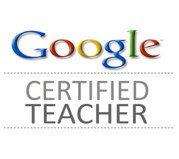The day was great. We had hoped for a larger crowd, but the 10-4 timeline on a (snowy) Sunday may have deterred people. We also need to work more on branding. It seems clear that there is a lack of understanding. What IS edJEWcon? Is it a technology conference? (No!)
I did put together a trailer to try to explain, in general, what edJEWcon is about.
edJEWcon from edJEWcon on Vimeo.
Afterwards, we had what I thought was an excellent selection of "breakout sessions" with some really great educators sharing their ideas. For my session, I wanted to lead a conversation called "Learning is Messy." I blogged recently about some of my thoughts and feelings about all of the boxes in education, and it is something I've really been struggling with in my own teaching practice. My goal, as it always is, was to have the session be very interactive. I structured it using the "What? So what? Now what?" protocol.
It felt like a successful session but not a conversation. One thing I really love about going to share my work at other schools or conferences is the perspective it affords me. In my day-to-day reality, I am motivated to work hard by an awareness of how much better I can be, how much more there is to learn and do. It is like climbing a huge mountain without stopping, only focused on how far there still is left to climb.
Sharing my work elsewhere is akin to taking the time to stop and review how much I've already done, to look back and appreciate that I've actually come a long way. It's something I never take time to do unless I find myself sharing the process with others who are interested.
It felt gratifying to share our student blogfolios and student-led conferences with the teachers in Cleveland. They were impressed by our students' capacity for reflective self-evaluation, as well as the evidence of digital literacy (hyperlinked persuasive blog posts; Creative Commons images, properly cited) they saw on the student blogs.
I am left with these questions, needing more thought and discussion:
Why is it so challenging to get the whole learn-reflect-share cycle happening? Is it worth the effort? How can we create a structure that supports the entire process?
How do we continue to grow these experiences for maximum impact on the learning culture at our schools? How do we build and sustain a network that exists beyond the in-person experience?


.jpg)


.pdf.jpg.jpg)




